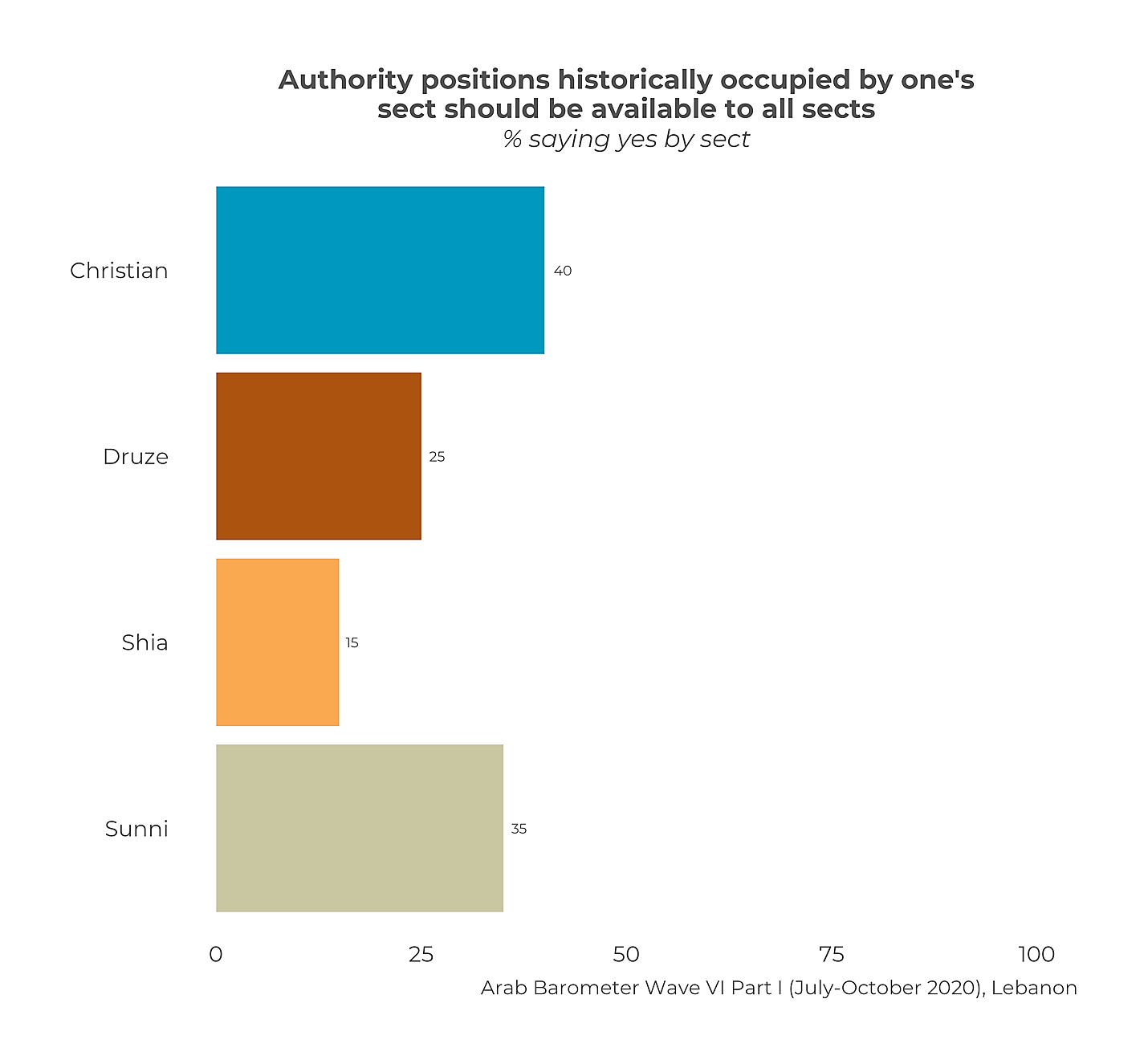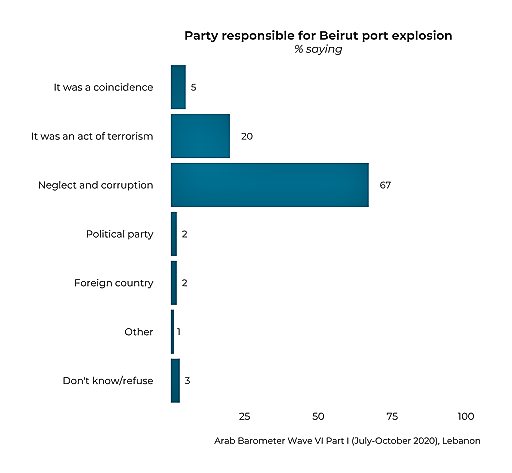Lebanese have been rising up for change in the political system since the October 17 Revolution in 2019. Over a year later, a recent survey by Arab Barometer, conducted after the Beirut Port explosion, shows that these demands are still unchanged.
After asking 1,000 Lebanese, Arab Barometer’s survey reveals that slightly over half of the Lebanese population (56%) prefers a civil/secular political system.
This majority consists mainly of Lebanese Christians (72%) at the top, followed by 46% Sunni, then Shia citizens who support a secular civil state.

On the other hand, 23% of Lebanese want a federal system of government that would maintain the country’s sects. Only 10% say they prefer the same sectarian system as it is now.

Despite that, the majority said no when asked if political positions that have been historically occupied by their sect should be available to all sects. More than half of that said yes and 17% said maybe which shows that some can consider it.

Although there were people of all religions who said no, the sect most unwilling to give up its positions was the Shia (59%). The majority of those who said yes were Christians, followed by Sunnis.

Surprisingly, the survey shows that rebuilding Beirut after the devastating blast is not the main concern for its residents in the face of making banking and financial reforms and reducing poverty.
45% of Lebanese surveyed in Beirut say that the government’s most urgent priority should be the banking and financial reforms.

As for the blast, the striking vast majority (67%) blame the explosion on neglect and corruption in Lebanon’s government.

Additionally, the majority (41%) believe there should be an independent international investigation. It is interesting to see that this majority consists of Christians, Druze, and Sunnis, but less than half as many Shias.
Arab Barometer director Michael Robbins said that could be partly due to the fact that the port where the explosion took place was “largely controlled by Hezbollah,” despite the party denying this.

“Although a new social compact is desired with most favoring a system that deemphasizes sectarian identities, there remains concern about losing the established privileges of the existing system,” writes Robbins.
What’s plain to see is that Lebanese are mainly dissatisfied with the current government and its toppling failures and corruption that have plunged the country into a pool of crises.
















